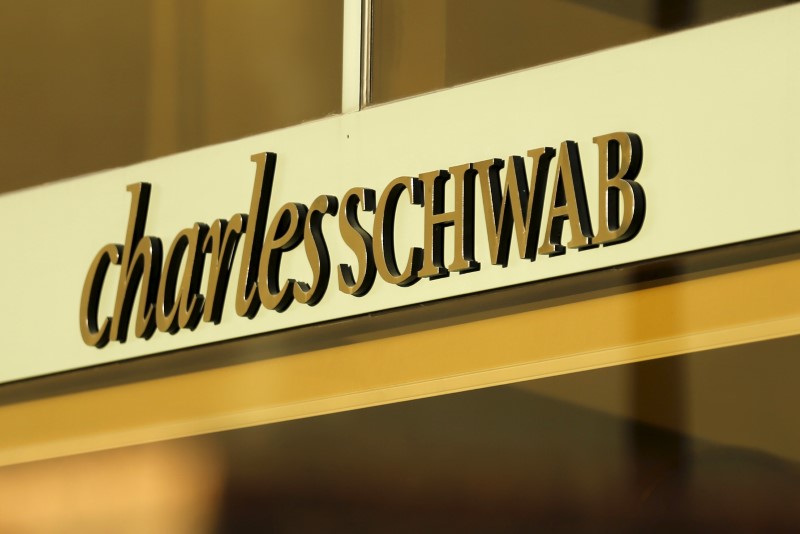This post was originally published on this site
https://i-invdn-com.investing.com/trkd-images/LYNXMPEI5C0IP_L.jpg
WASHINGTON (Reuters) -Charles Schwab Corp will pay $187 million to settle U.S. Securities and Exchange Commission (SEC) charges accusing three investment adviser subsidiaries of failing to disclose less profitable fund allocations and misleading robo-adviser clients, the agency said on Monday.
The SEC, the federal agency that regulates Wall Street, called Schwab’s conduct egregious. The SEC has stepped up scrutiny of brokerages’ use of robo-advisers and misleading disclosures to investors about returns.
“In entering the settlement, Schwab neither admits nor denies the allegations in the SEC’s order. We believe resolving the matter in this way is in the best interests of our clients, company and stockholders as it allows us to remain focused on helping our clients invest for the future,” a Schwab spokesperson said in a statement.
From March 2015 through November 2018, Schwab touted that its robo-adviser would seek “optimal returns” to investors, whereas in reality the brokerage’s own data showed that under most market conditions the cash in the portfolios would cause clients to make less money even while taking on the same amount of risk, the SEC found.
The Texas-based company advertised the robo-adviser as having neither advisory nor hidden fees, but did not tell clients about this cash drag on their investment. In turn, Schwab made money from the cash allocations in the robo-adviser portfolios by sweeping the cash to its affiliate bank, loaning it out and then keeping the difference between the interest it earned on the loans and what it paid in interest to the robo-adviser clients, the SEC said.
“Schwab claimed that the amount of cash in its robo-adviser portfolios was decided by sophisticated economic algorithms meant to optimize its clients’ returns when in reality it was decided by how much money the company wanted to make,” SEC enforcement chief Gurbir Grewal said.
“Schwab’s conduct was egregious and today’s action sends a clear message to advisers that they need to be transparent with clients about hidden fees and how such fees affect clients’ returns,” Grewal added.
The SEC has also issued a range of rule proposals meant to boost investor disclosures, including one on digital engagement practices.

